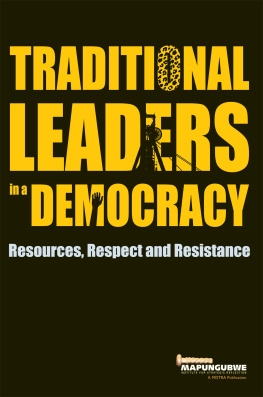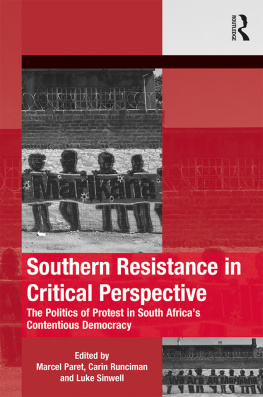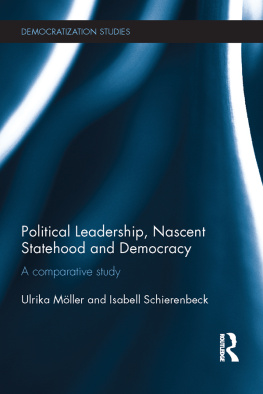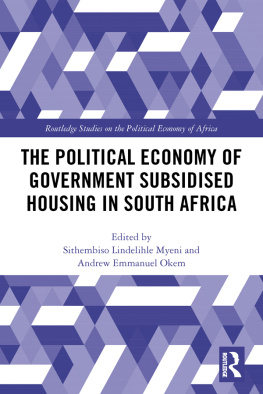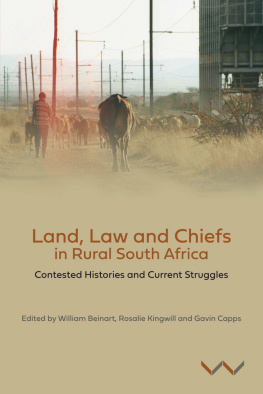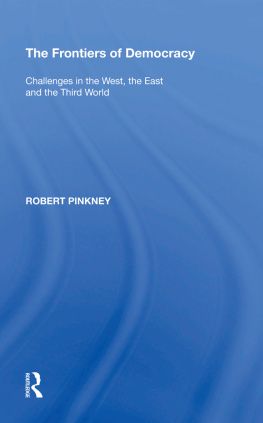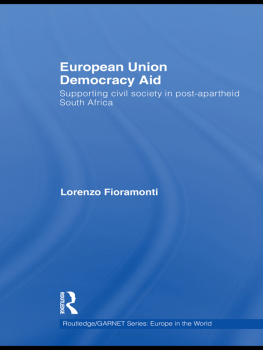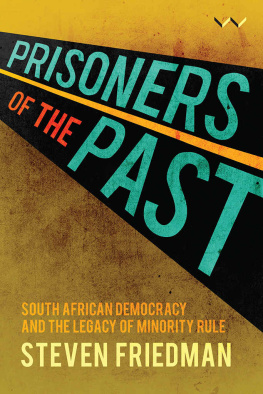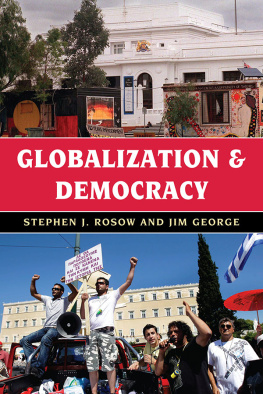First published by the Mapungubwe Institute for Strategic Reflection (MISTRA) in 2019
142 Western Service Rd
Woodmead
Johannesburg, 2191
ISBN 978-0-6399238-3-3
MISTRA, 2018
Production and design by Jacana Media, 2019
Text editors: Terry Shakinovsky, Susan Booysen
Editorial assistance: Nqobile Mangena, Njabulo Zwane
Copy editor: Linda Da Nova
Proofreader: Megan Mance
Designer: Shawn Paikin
Set in Sabon 10.5/15pt
Printed and bound by CTP Printers, Cape Town
Job no. 003413
When citing this publication, please list the publisher as MISTRA.
All rights reserved. Without limiting the rights under copyright reserved above, no part of this publication may be reproduced, stored in or introduced into a retrieval system, or transmitted, in any form or by any means (electronic, mechanical, photocopying, recording or otherwise), without prior written permission of both the copyright holder and the publisher of the book.
This book is sold subject to the condition that it shall not, by way of trade or otherwise, be lent, re-sold, hired out or otherwise circulated without the publishers prior consent in any form of binding or cover other than that in which it is published and without a similar condition being imposed on the subsequent purchaser.
I n October 2018, as this book was going to print, South Africas apex court made a ruling on the Bakgatla community in the Northwest Province that has been described as ground-breaking. It rejected the power of traditional leaders to enter into agreements with mining companies without consulting residents occupying the affected land. In the same period, communities in Melmoth, KwaZulu-Natal, were opposing an attempt by the traditional Ingonyama Trust to assume custodianship of farms that they had got through land restitution.
These developments underline the three basic elements that typify relationships in South Africas communal areas: supremacy of the countrys constitution across the length and breadth of the republic; control over resources; and the continuum of respect and resistance.
It is precisely these issues that this edited volume of the Mapungubwe Institute for Strategic Reflection (MISTRA), Traditional Leaders in a Democracy: Resources, Respect and Resistance seeks to address.
The role of traditional authority in a democratic dispensation is highly contested. While the constitution acknowledges this system, the formulations are vague, and they are a source of much frustration among traditional leaders, who clamour for more power and authority. Legislation aimed at regulating traditional institutions has sought to democratise the system. Yet, in many areas, these laws are observed in the breach. Other statutes, which have tended to tilt the balance in favour of traditional leaders, have either failed to pass muster in the courts or crumpled in the face of civil protest.
Public discourse on traditional leadership has been deeply divided. Centred on a dichotomy between democracy and chieftaincy and between continuities and discontinuities in the system of traditional governance, the divisiveness of these debates has meant that nuances in the lived experience are often missed.
In this volume, the authors seek to capture these nuances by delving into such questions as: whether reference to a historically frozen traditional system is not pretentious given how that system itself was continually shaped and reshaped before and during colonial rule; how constitutional democracy and traditional leadership are influencing each other in ways that are not immediately obvious; and how people living under traditional authorities combine conformity and resistance to shape these institutions in new ways under new conditions.
As they take their journey through history, document development and distributive struggles, and examine the fraught question of authority and legitimacy, the authors add complexity to many salient debates. Using conceptual frameworks and rich ethnography, they reflect on the processes of appointment of traditional leaders; the assertion of popular sentiment including the historical flux of ethnic fusion and fission that helped keep chiefly arrogance in check; the jackboot of patriarchy and the tenuous influence of women in traditional settings; and the distortions that colonial rule imposed on the essence and praxis of traditional leadership.
As with all management of social relations, the issue of resources plays a critical role in determining levels of social cohesion or anomie in traditional communities. Against the backdrop of the mode of economic production in todays South Africa, custodianship easily transmutes into ownership as greedy leaders pursue personal accumulation of wealth. Confrontation around land and mining resources then becomes the stock-in-trade. In the recent period, the opening of platinum and other mines in some communal areas has generated tensions variously between the traditional leaders, municipal governments, private companies and local communities.
In examining issues of legality and legitimacy, some of the authors illustrate how, after colonial conquest, legislation served to freeze and distort traditional leadership in ways that benefitted the political and economic elites. Although under circumstances of professed good intentions on the part of government, this is now playing out in the paradoxes and inconsistencies of the post-apartheid dispensation. At the same time, both the law and the courts have been mobilised in the struggles against the abuse of power.
This book argues that it is not traditional leadership as such that poses problems for democracy or even the inverse but rather the ways in which the system has been distorted. It posits approaches to the resolution of these paradoxes in a manner that eschews rigidity.
MISTRA wishes to thank all the contributors, and to encourage all sectors of society to reflect on these issues as we continue shaping South Africas democracy. Our gratitude also goes to all the partners, including the funders, who make such independent and dispassionate inquiry possible.
Joel Netshitenzhe
Executive Director
T he Mapungubwe Institute for Strategic Reflection (MISTRA) would like to express its deepest gratitude to the project leaders and co-editors of this book, Mbongiseni Buthelezi, Dineo Skosana and Beth Vale, who was also the project coordinator. All three of them provided invaluable oversight of, and editorial contributions to, this book. We also owe our thanks to the contributing authors for the time and energy dedicated to producing these chapters.
Appreciation is extended to the subject specialists who provided invaluable comment and feedback, strengthening the books analysis: Cynthia Kros, John Wright, Andrew Ainslie, Sheila Meintjies, Sarah Godsell, Noor Nieftagodien and Inkosi Sbonelo Mkhize. Members of the History Workshop (University of the Witwatersrand) not only gave invaluable feedback on content and analysis, but also co-hosted the colloquium at which these chapters were workshopped. Thanks go to Antonette Gouws for her logistical support in this regard.
A number of MISTRA staff also contributed to the successful completion of this project: Lorraine Pillay, who expedited contracts and invoices; Thabang Moerane, Dzunisani Mathonsi, Duduetsang Mokoele and Towela Ngambi for their substantive logistical support; Xolelwa Kashe-Katiya for guidance on project planning; Barry Gilder for facilitating the operational activities necessary for publication; Njabulo Zwane and Nqobile Mangena for assisting with technical edits. Appreciation also goes to Susan Booysen, Terry Shakinovsky and Joel Netshitenzhe for their close reading and editing of the manuscript.

